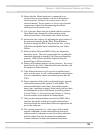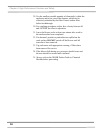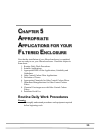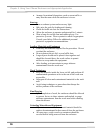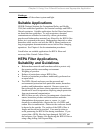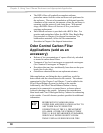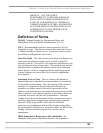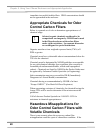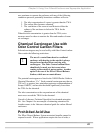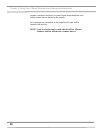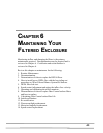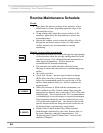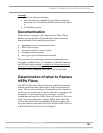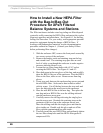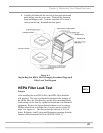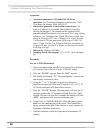
41
Chapter 5: Using Your Filtered Enclosure and Appropriate Application
user continues to operate the enclosure with any of the following
conditions present a potentially hazardous condition will exist:
1. The inlet concentration of vapors is greater than the TWA.
2. The carbon filter becomes saturated.
3. The ventilation of the room is insufficient to dilute the
exhaust of the enclosure to below the TWA for the
chemical.
When the inlet concentration is greater than the TWA, extra
measures must be taken to monitor the filter and number of room
air exchanges.
Chemical Carcinogen Use with
Odor Control Carbon Filters
Selected carcinogens may be used safely with Odor Control carbon
filters under the following restrictions.
The use of a vented fume hood or ventilated
enclosure with ducting to the outside is always
the preferred method when working with
carcinogens. The Odor Control carbon filters
should only be used, as a last resort when
venting to the outside is not an option. Another
option is the use of the XPert Filtered Balance
Station, which uses a remote blower.
The potential carcinogens are listed in the NIOSH Pocket Guide to
Chemical Hazards as “Ca.” Each potential carcinogen must have a
TWA of 1 or greater; have minimum respirator recommendation of
Escape GMFOV, and an odor threshold significantly lower than
the TWA for the chemical.
The inlet concentration or the evaporation rate of the chemical
must never exceed the TWA for the chemical.
Consult a Labconco Technical Specialist for estimated saturation
life. See Chapter 6 for an example of estimating saturation life.
Another source is the Labconco chemical guide for carbon filtered
enclosures.
Prohibited Acid Use
The XPert Filtered Balance System motorized impeller cannot be
exposed to acids. Where applications require the use of acids, a
!



